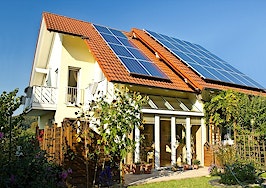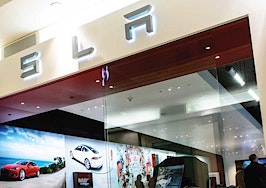With the sunny summer months quickly approaching and everyone’s natural desire to save money and “go green,” solar panels probably seem like an obvious idea. They can help cut a home’s energy costs as well as reduce carbon footprints. Although solar panels seem to be the way to go, they are expensive, usually upward of $30,000. If your client doesn’t have that kind of cash lying around to make this investment, there’s solar panel leasing. But you might want to tell clients to think twice before calling a solar panel installer.
Leasing solar panels is an easy and affordable way to go green and potentially cut energy costs. But the list of problems you might run into after the installation could make you reconsider.
Most solar panel leases are 20-year lock-ins, which is fine if your client plans to live in the home for the rest of their lives. Unfortunately, most people do not stay in their home for that long due to changes in income, job transfers and changes in family status, just to name a few.
According to the National Association of Home Builders, the average length of time a person is expected to stay in their home is 13 years. So what happens to the locked-in lease should your clients decide to sell their home before the term is over?
Well, there are two options: Either the new buyer must qualify to take over the solar panel lease, or one of the two will have to buy out the lease, which could potentially cost up to $20,000. That’s a pretty hefty bill to foot either way you slice it.
Disputes over solar panels are becoming increasingly more common as buyers and sellers sometimes can’t agree on how to handle the substantial payments, or perhaps the buyer thinks the lease agreement is a bad deal, and they can do better.
Taking this a step further, a lease payment can impact whether the buyer still qualifies to purchase your home. Let’s say the new buyer is open to taking over the old lease; they might not qualify. When a buyer is qualified to purchase a home, energy costs are not factored into a mortgage calculation. But because a lease payment is included on a credit report, it will now be factored in, and another bill can directly affect a buyer’s qualifying ratios.
So, though going green and conserving energy can provide countless benefits for your clients, make sure they consider all of the factors that can impact them when researching leasing versus buying solar panels. If your clients are convinced that solar panels are right for them, buying outright could potentially alleviate any issues that might arise when your clients are ready to sell their home.
Rick Scherer began his career in the mortgage industry in 2001 after graduating from Bentley University with his degree in finance and marketing. In his successful career as a senior mortgage planner, Rick has funded 475 million in loan volume throughout the New England area. Rick also specializes in financing condominiums and multifamily homes for both owner-occupancy and investment purchases.



